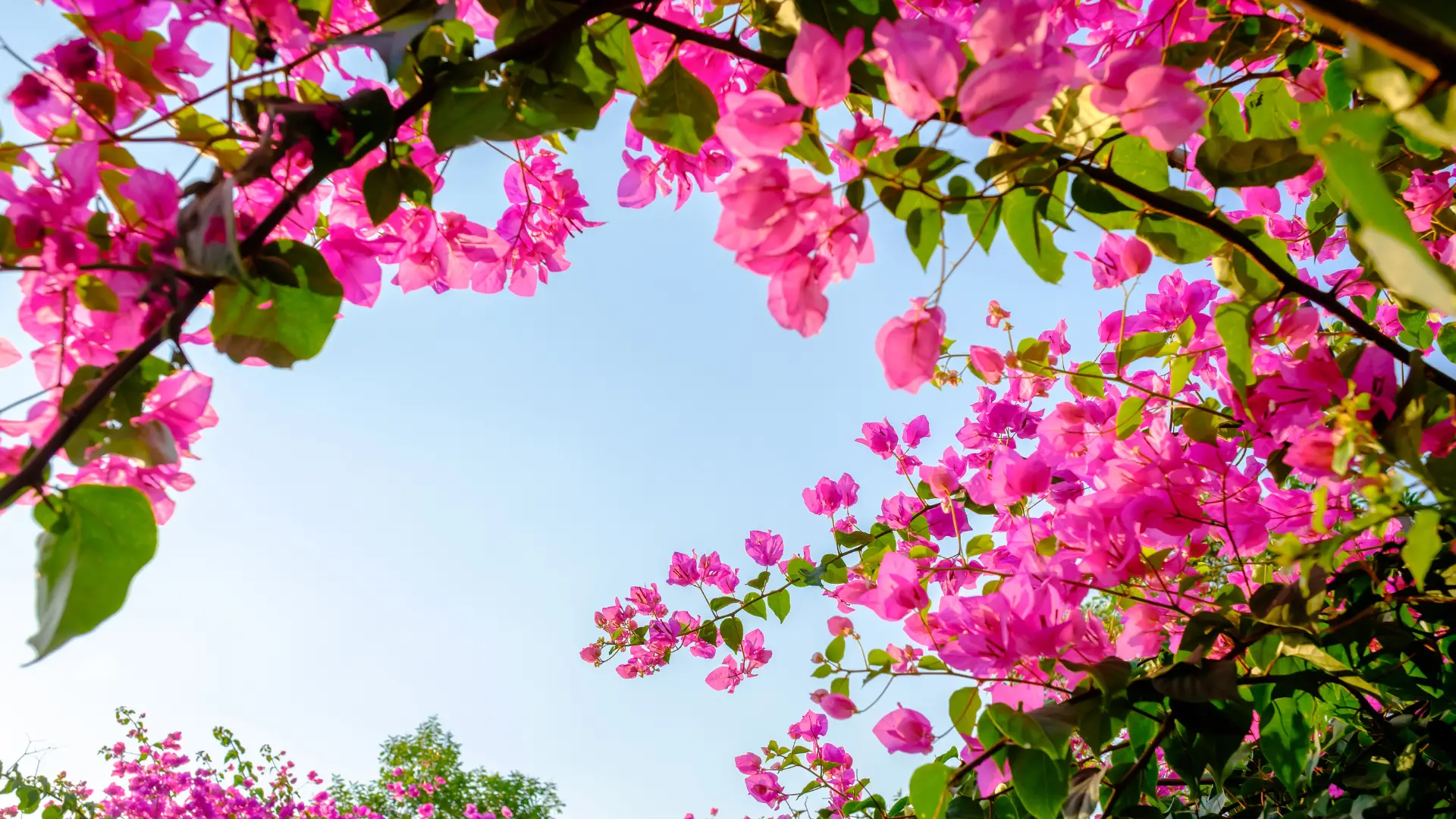Reading Time: 4 minutes 🍃
Bougainvilleas are one of the most attractive ornamental vines. It’s characterized by its sprawling, bushy nature and beautiful flowers blooming in purple, red, and pink.
However, the plants need ideal growing conditions and continuous care to thrive and bloom. So, can you use ericaceous compost for bougainvilleas?
Bougainvilleas naturally thrive in acidic soils with an average pH of 5.5 and 6.0. For that reason, adding ericaceous compost to bougainvilleas is highly recommended to maintain its pH, among other benefits. Remember that ericaceous compost is slightly more acidic than necessary, so mix it up with neutral soil in a 1:4 ratio.
Today’s guide will show you how to properly maintain a healthy bougainvillea using ericaceous compost and its benefits for the plant. Let’s dive right in!
What Kind of Soil is Best for Bougainvilleas?
One of the most important aspects for a healthy Bougainvillea plant to thrive is the use of proper soil. Ideally, this plant will prefer well-drained soil that is slightly acidic.
The soil should also be rich in several micronutrients and minerals that are essential for the growth of the plant.
While the exact pH range may vary depending on the species of Bougainvillea you’re growing, most of them will thrive in a limited pH range between 5.5 to 6.0.
The reason behind this strict pH range requirement is that higher pH levels (above 6.0) will affect the availability of some minerals in the soil, such as iron, which can cause stunted growth and lack of vibrancy during the blooming season.
For that reason, it’s highly recommended that you always keep the soil within the recommended pH and complement it with proper fertilizers and acidic composts, such as ericaceous compost.
How to Use Ericaceous Compost with Bougainvilleas
As previously established, Bougainvillea requires fairly acidic soil in order to thrive and grow. For that reason, one of the best and easiest ways to acidify the soil is by using ericaceous compost.
However, you should keep in mind that ericaceous compost comes in a wide range of pH levels, depending on the producer.
In most cases, you’ll find ericaceous compost with a pH level that is anywhere between 4.0 to 5.0. This can be a little too acidic for the Bougainvillea, so it’s usually recommended to adjust the amount of compost added carefully.
To help you with that, here’s a brief guide that shows you how to use ericaceous compost with bougainvillea properly:
Step 1: Assess the Soil’s pH
To avoid adding too much or too little compost to your soil, make sure that you start by measuring the pH level of the soil.
You can do this using various methods, but the most ideal one is by using a pH Tester kit, which comes with the extra bonus of measuring the soil’s moisture level.
Step 2: Add Ericaceous Compost to the Soil
Now that you know the amount of compost needed for your Bougainvillea plant, it’s time to apply it to the soil.
To avoid over-shooting the amount of ericaceous compost necessary, here’s what you should do:
- For potted indoor Bougainvilleas: Add 1 part of the compost for every four parts of the soil
- For outdoor Bougainvilleas: apply a 2 to 3-inch layer of the compost over the soil.
Mix the topsoil with the compost layer using a garden fork to ensure even distribution. If you already have the Bougainvillea planted, keep the compost away from the plant’s stem to avoid nutrient burns.
Step 3: Adjust the Soil’s pH to suit Bougainvillea’s Requirements
Use the pH tester kit to measure the soil’s pH once again. In most cases, the soil should be within proper pH. If not, simply use more compost to decrease the pH.
If the soil is too acidic, allow the soil to sit for a few days, and it should be fine (or use baking soda if you’re in a hurry).
Step 4: Mulch and Wait
In addition to naturally acidifying the soil, another great benefit of this compost is that you can also use it as mulch. Mulching the soil with ericaceous compost comes with various benefits, such as:
- Retaining the acidity of the soil for longer
- Slow down the drying rate of the soil in a hot region
How Often Should You Water Bougainvilleas with Ericaceous Compost?
Bougainvillea likes well-drained soil that isn’t too moist. The plant is very tolerant to drought and highly sensitive to overwatering and root rot.
As a rule of thumb, consider watering the plant thoroughly every 3 to 4 weeks, especially if you apply ericaceous compost mulch that retains moisture. These rules don’t apply to young growing plants, as you might need to water them frequently.
Here’s a helpful video that will guide you through all the necessary aspects you need to keep in mind while growing Bougainvillea.
What Is the Ideal Fertilizer Combination for Bougainvilleas?
Despite needing very little water, Bougainvillea requires a lot of nutrition in order to grow and bloom its vibrant flowers throughout summer, spring, and fall.
For the best growth, avoid using balanced fertilizers like 10-10-10 or 20-20-20 because too much nitrogen and phosphate can actually inhibit growth.
Luckily, there are several types of fertilizers out there that are specifically formulated for Bougainvillea with excess minerals such as iron.
A good recommendation here is to feed the plant every 7 to 10 days with fertilizers like BGI BOUGAIN 10lb Bag, Bougainvillea Fertilizer
Final Thoughts
With that said, you now have a brief guide with all the necessary information about growing bougainvilleas with ericaceous compost.
These colorful and lovely shrubs thrive in relatively acidic soil with a pH level of around 5.5 to 6.0.
Luckily, acidic mixes like the ericaceous compost are usually quite acidic, so you can use them either directly or with very few adjustments.
Sources
- https://homeguides.sfgate.com/care-bougainvillea-plant-24303.html

- https://www.ctahr.hawaii.edu/oc/freepubs/pdf/of-38.pdf

- https://growensemble.com/benefits-of-composting/

- https://www.thespruce.com/grow-bougainvillea-inside-1902743


